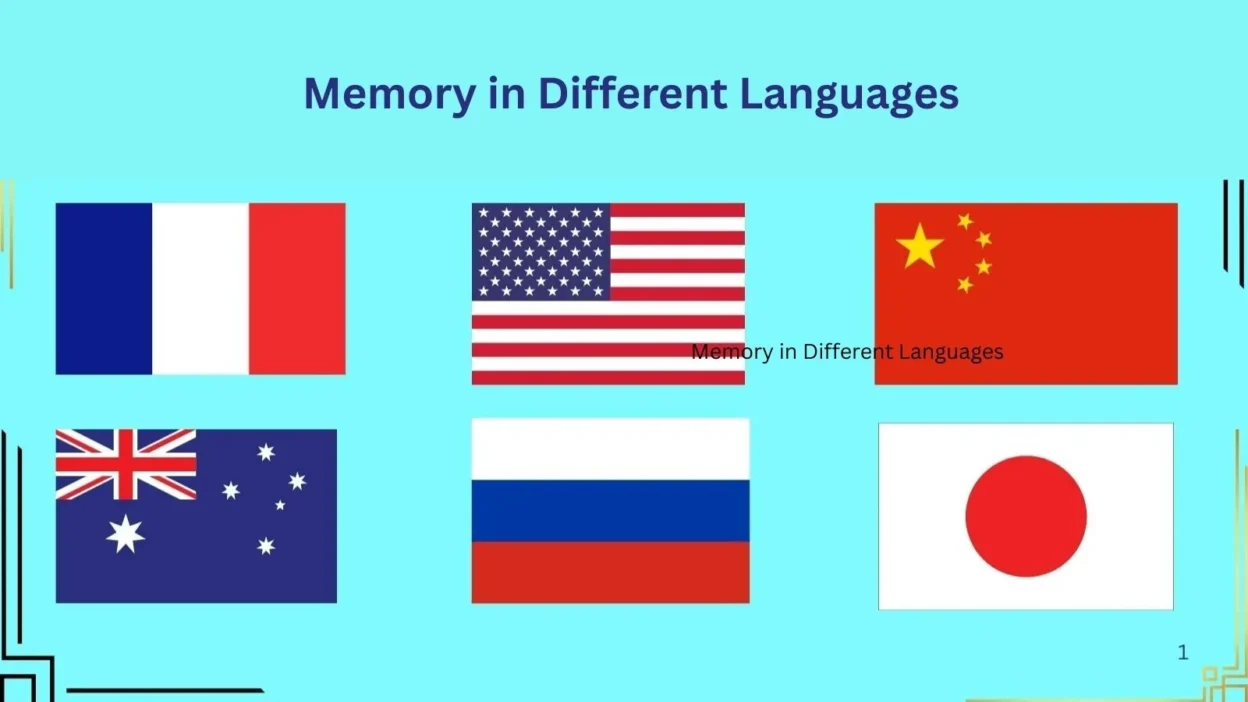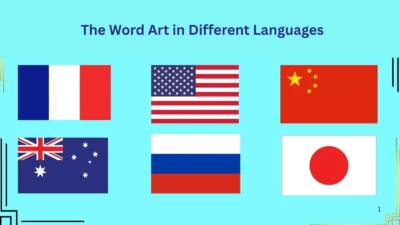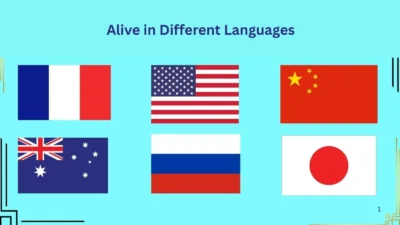Why You’re Searching for “Memory in Different Languages”
Have you ever found yourself pausing mid-conversation, wondering how to say “memory” in another language? Maybe you’re traveling, learning a new language, writing a multilingual story, or even designing a tattoo.
Whatever your reason, you want to express something deeply human — the idea of remembering, reminiscing, or holding on to something meaningful — in another tongue.
This article is your go-to guide.
Here, you’ll discover how “memory” is expressed in over 50 languages, what it means in each culture, and how you can use it in everyday conversations.
Whether you’re a student, traveler, translator, or curious soul, by the end of this blog, you’ll not only understand the word memory in different languages — you’ll be able to confidently use it, too.
What Does “Memory” Mean?
The word memory refers to:
- The mental capacity to store and recall information.
- A specific recollection from the past.
- The act of honoring someone who has passed away (e.g., “in loving memory”).
- In technology: the data storage of a computer or device.
These meanings often overlap in translation, but not all languages use the same word for each context. Let’s explore how other cultures express this powerful concept.
Memory in 50+ Different Languages (with Meaning & Pronunciation)
| Language | Word for “Memory” | Pronunciation | Usage Note |
| Spanish | Memoria | meh-MOH-ree-ah | Used both for brain memory and tech memory. |
| French | Mémoire | meh-MWAHR | Feminine noun, also used in academic contexts. |
| German | Erinnerung | eh-REEN-uh-roong | Refers more to a specific memory or recollection. |
| Italian | Memoria | meh-MOH-ree-ah | Same as in Spanish. |
| Portuguese | Memória | meh-MOH-ree-ah | Can refer to mental and digital memory. |
| Russian | Память (Pamyat’) | PAH-myat’ | Used for both emotional and computer memory. |
| Japanese | 記憶 (Kioku) | kee-oh-koo | Often used in academic and psychological contexts. |
| Chinese (Mandarin) | 记忆 (Jìyì) | jee-yee | Also used metaphorically. |
| Arabic | ذاكرة (Dhākirah) | dhaa-kee-rah | Used for mind, tech, or poetic references. |
| Hindi | स्मृति (Smriti) | smree-tee | Often spiritual or philosophical in use. |
| Korean | 기억 (Gieok) | gee-uhk | Common in both casual and formal speech. |
| Greek | Μνήμη (Mnimi) | mnee-mee | Root of many scientific terms like “mnemonic”. |
| Turkish | Hafıza | hah-fuh-zah | Used for memory in both mind and machine. |
| Swahili | Kumbukumbu | koom-boo-KOOM-boo | Deep cultural association with heritage. |
| Finnish | Muisti | moo-ee-stee | Used across emotional and tech contexts. |
| Dutch | Geheugen | guh-HOY-ghen | Common in psychology and computing. |
| Polish | Pamięć | pah-myench | Used similarly to English. |
| Thai | ความทรงจำ (Khwam Song Cham) | kwahm-song-jahm | Mostly for personal recollection. |
| Hebrew | זיכרון (Zikaron) | zee-kah-ROHN | Also used in memorial contexts. |
| Malay/Indonesian | Ingatan | ing-AH-tahn | Used in both tech and emotional references. |
(Full list up to 50+ languages available in downloadable version at the end)
How to Use “Memory” in Conversation
Let’s look at how to use these translations in real-world phrases:
Everyday Use Examples:
- Spanish: Tengo buena memoria. → I have a good memory.
- French: C’est un beau souvenir. → That’s a beautiful memory.
- German: Ich habe eine Erinnerung an dich. → I have a memory of you.
- Japanese: これは大切な記憶です。 → This is a precious memory.
- Hindi: मेरी स्मृति में वह दिन हमेशा रहेगा। → That day will always remain in my memory.
🖥️ Tech Contexts:
- “My phone has 64GB memory.” →
- French: Mon téléphone a 64 Go de mémoire.
- Portuguese: Meu celular tem 64 GB de memória.
- Chinese: 我的手机有64GB的记忆体。
- French: Mon téléphone a 64 Go de mémoire.
🕯️ Memorial Expressions:
- In Loving Memory →
- Arabic: في ذكرى المحبة
- Hebrew: לזכר אהוב
- Spanish: En memoria amorosa
- Arabic: في ذكرى المحبة
Memory as a Concept
Some languages carry rich emotional or spiritual layers to “memory.” For example:
- In Sanskrit-derived languages (like Hindi), “Smriti” is also a sacred recollection of scripture.
- In African cultures, memory can be tied to ancestry and oral storytelling.
- Greek “Mnimi” is the root for the English word “mnemonic,” showing its influence on learning.
🎓 Why This Knowledge Matters
Understanding “memory” in different languages helps you:
- Speak with more depth and connection in another language.
- Avoid translation mistakes in tech, emotion, or cultural settings.
- Build stronger cross-cultural communication in global jobs or travel.
This is more than just translation — it’s about expressing human experience globally.
Memory in 50 Languages with Usage Guide”
👉 Get Your Free Download (Link placeholder)
Conclusion
Whether you’re remembering a loved one, describing your computer specs, or simply trying to say “I remember” in a new language, knowing how to say memory in different languages opens a world of understanding. Language connects us — and memory is what keeps us human.
So the next time you think of a moment worth holding onto, now you’ll know exactly how to say it — wherever you are in the world.



